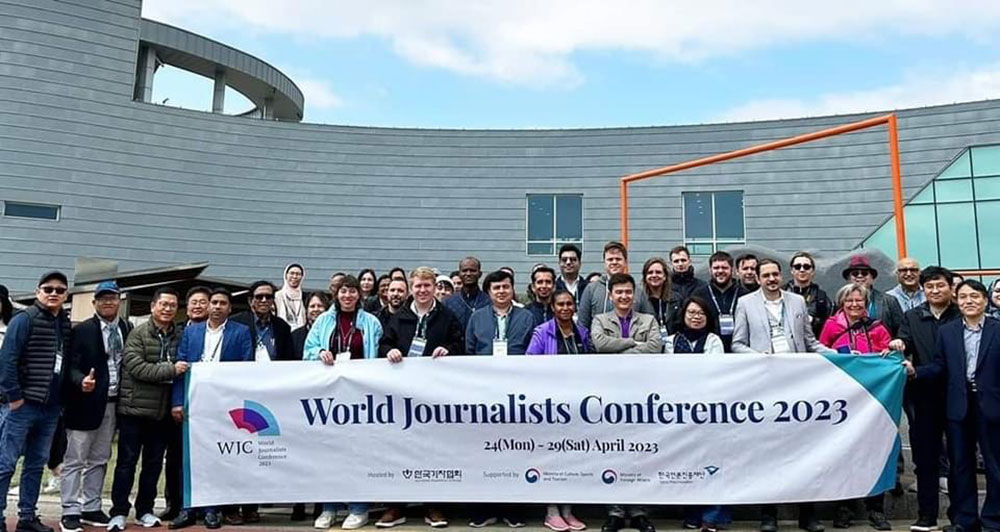Rinzin Wangchuk
As the media houses in Bhutan are grappling with problems with the high turnover of journalists, an academic writer claimed that newsrooms could use artificial intelligence (AI) to carry out news gathering and editorial tasks.
“I see there is no reason to worry about journalists leaving their profession because it is the age of AI for journalism,” he said, adding that AI can replace humans at no cost at all.
He also said that new AI models like ChatGPT can do everything including editing stories and writing editorials.
While discussing leadership in the digital transformation era and the future of journalism at the world journalists conference in Korea last week, editors and seasoned journalists from 50 countries agreed that AI is ushering in a world of efficiency and insight never before achieved by humankind.
Media professionals also agreed that ChatGPT would help non-native English-speaking journalists, especially to understand concepts and to generate questions. For instance, senior digital planning editor of Gulf News, Anupa Kurian Murshed, asked ChatGPT what are the challenges that newsrooms are facing today. “It came up with aggregated points that resonated with what I had listed based on my experiences in newsrooms,” she said.
Xinhua News Agency’s deputy chief editor Zhou Ning said that the authenticity of the content generated by AI still needs to be improved. “It may generate some texts that seem smooth and credible but lack effective verification mechanism, and some content may even be fabricated,” he said. For example, when ChatGPT answers user questions about legal issues, it may invent some non-existent legal provisions.
Fake news and copyright issues
The proliferation of AI, according to media professionals, is not only generating fake news, misinformation and content bias but also emerging plagiarism issues.
Narrating a recent case, Anupa Kurian Murshed said one of the publications has been picking stories from Gulf News archives, tweaking them a bit and publishing them as their own. “Just enough changes were being done to escape the label of copyright violation,” she said.
This kind of plagiarism among other issues, according to the senior digital planning editor, is one of the biggest concerns with content generated by AI. “It could work against creativity and come up with wrong and biased information as it is just an aggregator, not a fact-checker.”
She added that one cannot fully trust what AI shows you. “Therefore, AI cannot replace humans. You need people to check, evaluate and take that final qualitative decision.”
Head of digital planning team in Korea, Ryu Hyun Jung said that media organisations must undertake a radical overhaul of their processes by leveraging AI to significantly reduce the burden of mundane writing and other routine tasks. “By doing so, journalists will be freed to concentrate on generating original and factual stories.”
Media professionals called organisations to collaborate and demand large tech companies driving AI to provide compensation for the content produced by journalists. Journalists should serve as the final stronghold against the pervasive spread of fake news. “These efforts are integral to the process of establishing ethical standards for humanity in the era of ubiquitous AI,” Ryu Hyun Jung said.
The world journalists conference also called the media professionals to go deep into the fields and obtain the most accurate, authentic, and effective first-hand information, rather than relying on second-hand information generated by AI such as ChatGPT.
As part of the programme organized by the Journalists Association of Korea, journalists from around the globe also discussed media-related issues, peace on the Korean Peninsula and in the world, the role of journalists and various other issues.


